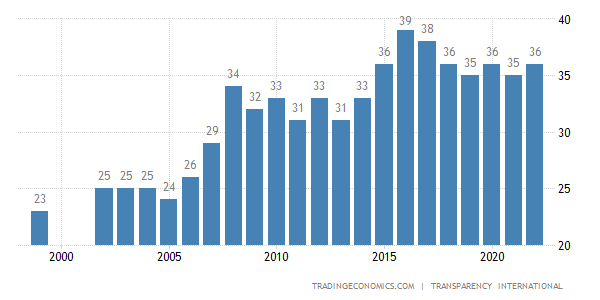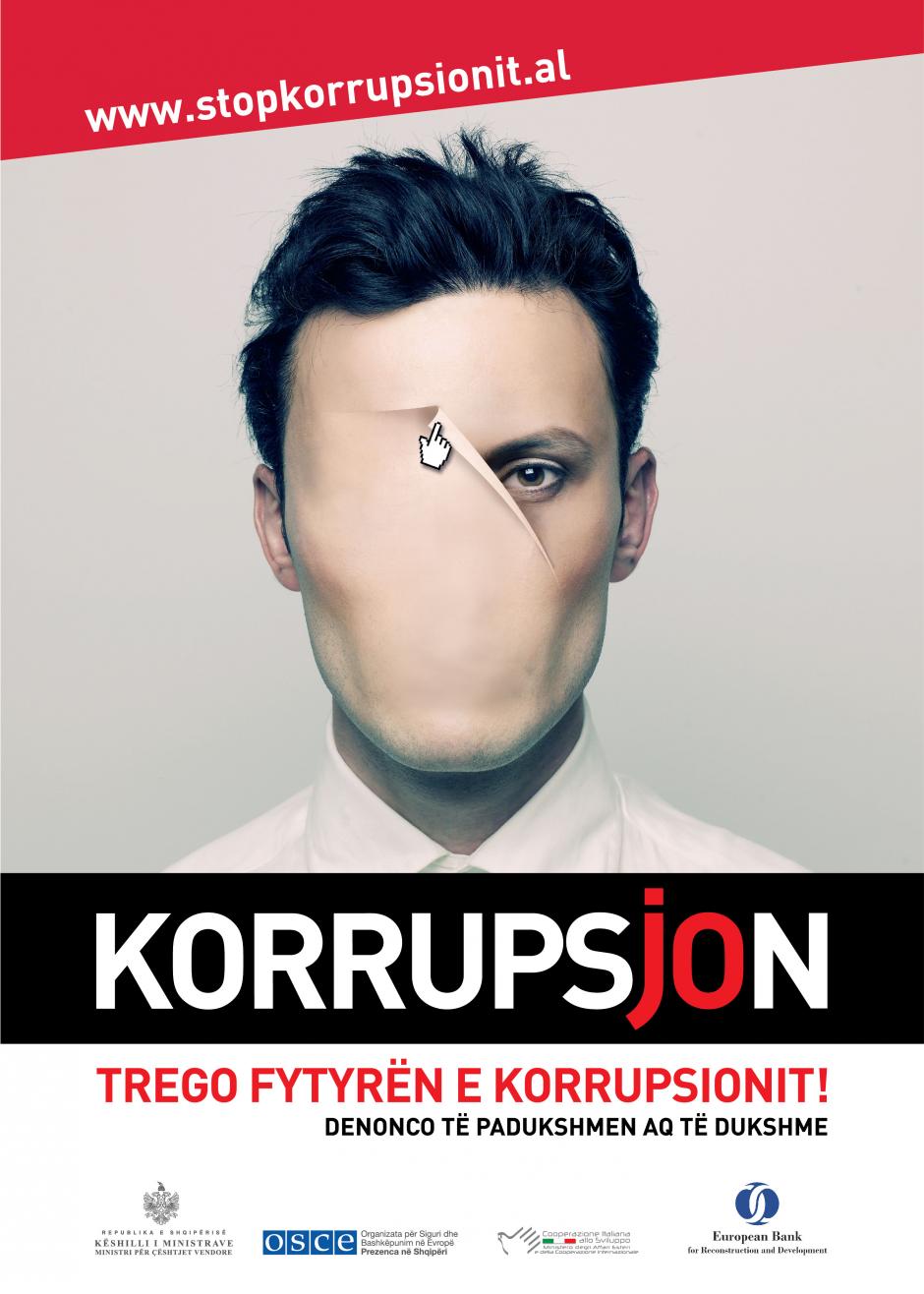The standard definition of corruption is “the abuse of public office for private gain.” Transparency International and others expand that all-purpose definition by explaining that abuses of “when public and private officials put their own undue personal interests ahead of the stated public interest, those norm deviations are corrupt. Doing so cheats the public, erodes the legitimacy of the polity involved, coarsens discourse between the state (or municipality or corporation) and the citizen or consumer, invites cynicism, and distorts priorities. No political jurisdiction can function on behalf of its citizens and stakeholders if its leaders and middle managers are focused on private gain rather than public enrichment. Corruption is a global problem and according to the World Economic Forum estimates that the annual global cost of corruption is about 5 percent of the total planetary GDP, possibly $2.6 trillion. The indirect costs of corruption are equally debilitating and harmful. Corruption leads to low economic growth rates and rising income inequalities.
The best-known and most widely used measure of corruption is Transparency International’s Corruption Perceptions Index (CPI). CPI ranks countries and territories based on how corrupt their public sector is perceived to be. A country or territory’s score indicates the perceived level of public sector corruption on a scale of 0 (highly corrupt) to 100 (very clean). Albania scored 36 points out of 100 on the 2022 Corruption Perceptions Index reported by Transparency International.
The lack of progress in fighting corruption remains one of the most serious problems confronted by the country, weakening the democratic regime by undermining citizen’s trust in democratic process. Corruption erodes public trust and slants economic growth. The negative trend in Albania is all the more worrying. In addition to bringing allegedly corrupt politicians and officials before tribunals so that they may be judged and, if merited, fined and sent to prison, there are a number of constituted instruments that can be used to identify the grand corrupters. Catching the crooks is much harder than it seems. Few keep books. Few allow records to be kept. Handshakes and winks substitute for signatures. Bundles of cash may be spirited off—hence the need in most political jurisdictions to establish one or more ways of doubling down on accountability and transparency (Rotberg 2020).
One of the latest steps in strengthening the anticorruption framework in Albania countries was the enforcement of rules by the 2016/2017 judicial reform and the establishing of specialised anticorruption agencies as Specialised Structure for Anti-Corruption and Organised Crime (SPAK), Special Prosecution Office (SPO) and National Bureau of Investigation (BKH)
Albania’s judicial reform, intended to remove corrupt judges and suppress organised crime, was a top priority for the country to embark on the path to EU accession. However, the Socialist Party (SP) and the opposition Democratic Party (DP) could not agree on how the reform should be carried out. It took the two parties 18 months of negotiations, disputes and mutual accusations, as well as a meeting between the SP and the DP and constant intervention from EU and USA, to reach an agreement. Eventually, at midnight on 21 July 2016, the Albanian Parliament unanimously passed a constitutional package substantially amending the judicial system of the country.
Adoption of judicial reform by changing the Constitution of Albania with the mutual agreement of the majority and opposition. This gave a green light for the adoption of vetting procedures for the judiciary and more efficient measures against corruption and organised crime.
The temporary re-evaluation of all judges and prosecutors (knwon as the vetting process) has continued to advance steadily. Under the aegis of the European Commission, the International Monitoring Operation has continued to oversee the process independently. By 2022, the vetting institutions had completed 554 first-instance cases. Around 64% of the vetting dossiers processed so far resulted in dismissals, resignations or the termination of mandate of vetted magistrates. SPAK, SPO and BKH, continued its operations. After a budget increase in 2021, the SPO now has 17 prosecutors in place, and the NBI reached its full operational capacity of 60 investigators.
Albania has some level of preparation in the fight against corruption. It continued its efforts to build on its track record of investigation, prosecutions and convictions in the fight against corruption and delivered some results. These efforts need to continue. However, greater political will, further structured efforts, and adequate resources and skills remain necessary. The SPAK Court delivered several important final decisions on high-ranking state officials, including a former Minister of the Interior and a former Prosecutor General. Although the vetting of members of the judiciary is an administrative process, it continues to bring results in the fight against corruption within the judiciary. A new General Anti-Corruption Directorate was created in the Ministry of Justice. Overall, despite some progress, corruption remains an area of serious concern. Increasing the number of final convictions of high-level officials remains an important priority to further tackle a culture of impunity. The sectors that are most vulnerable to corruption require targeted risk assessment and dedicated measures.
Parallel to the judicial reform the main opposition party Democratic Party (DP) proposed to the in 2018 a further anti-corruption mechanism, known as the vetting of the politicians. DP’s chairman Lulzim Basha proposed:
1. Full decriminalization of politics via vetting for politicians connected to crime
2. Releasing the judiciary from the political hold of PM Edi Rama
3. Free, honest, and democratic elections, with citizens being the ones who decide
4. A monopoly-free, oligarch-free, and governmental-corruption-free economy made to serve the well-being of citizens.
According to the opposition leader, the novelty in this platform consists of vetting for politicians, as it is currently being exercised for judges, prosecutors, and police officers.
These constitutional amendments proposed by DP were forwarded to the Venice Commission of the Council of Europe, which issued a report. According to the Venice Commission, the constitutional amendments and law on the vetting of politicians should be imposed (1) in pursuit of a legitimate aim, and (2) the means employed should not be disproportionate. It considers the first condition met, i.e. connections between politicians and criminals are a legitimate aim to proceed with constitutional amendments and laws on politicians vetting.
The proposed changes to the Constitution would subjected “Every member of the institutions established by the constitution and by the law, appointed in office by voting from the Parliament, including the function of the Prime Minister or members of the Council of Ministers,” to a process of “integrity control.” The issue of close contacts of members of parliament or municipal councils or government officials with organised crime is a long-standing problem in Albania. As shown by the first results of the vetting procedure of the judiciary, the interrelation of the state institutions and organised crime appears to be very high. This hampers trust in the state’s institutions and delegitimises its functions.
If organised crime is governing state institutions or at least has an influence on their work, the principles of rule of law cannot be applied in practice. […] In a state governed or influenced by organised crime, principles of dignity, equality or legality are set aside.
Regarding the second condition – the principle of proportionality – in the absence of any draft implementing legislation the Venice Commission finds it difficult to assess the proportionality of the measures introduced within the scope of the vetting procedure.
However, the vetting of politicians has been strongly opposed by the ruling Socialist Party, several of whose members were under investigation by the Prosecution and voted against the political vetting.
Although progress in the fight against corruption turned out slow, as while the legislation and institutional framework have seen substantial improvement, the policy enforcement produced little success in cracking down on corruption.








